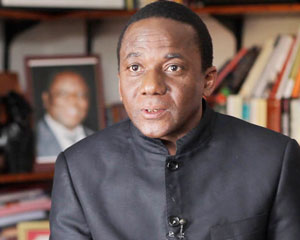
Zimbabwe and most of Africa, although independent, are still far from being free and emancipated. Political independence is defined simply as self-governing.
Sunday Opinion by Jameson Timba
Freedom is the power of self-determination attributed to the will; while emancipation is defined as being set free, especially from legal, social and political restrictions.
The main reason Zimbabwe and most of Africa, is yet to transit from Independence to freedom and emancipation is our failure to live up to the ideals of our liberation struggle and because of weak institutionalisation of national and regional bodies such as the Zimbabwe Electoral Commission (ZEC) and Sadc.
It is important to restate our ideals. People yearned for a non-racial democratic society, in which all would participate freely to choose their government through one person, one vote, and thereafter be governed well enough to be able to pursue their dreams of economic prosperity in freedom.
In Zimbabwe’s case, the last election demonstrated that we are far from the freedom that we yearn for.
Ignorance, fear and poverty were used as instruments to subjugate the majority of Zimbabweans and to delay our freedom.
Ignorance was used to rig the voters’ minds. Poverty restricts people to listening to state broadcasters because alternative media is costly. Ignorance was and is perpetuated by a cocktail of daily propaganda and hate speech fed to the majority by the state electronic and print media. Access to alternative information and media plurality is curtailed by the refusal to grant broadcasting licences to many others.
- Chamisa under fire over US$120K donation
- Mavhunga puts DeMbare into Chibuku quarterfinals
- Pension funds bet on Cabora Bassa oilfields
- Councils defy govt fire tender directive
Keep Reading
As part of the fear tactic, villagers including teachers were frog-marched and “assisted” to vote for a position dictated to them with the connivance of our traditional leaders. The same traditional leaders delayed our independence by supporting the unjust rule of Ian Smith. Fear was instilled into the villagers by the threat of the ghost of the June 2008 election violence. The villagers therefore chose “security” instead of “hope” for a better life for themselves.
Food handouts were used to coerce voters. The population was first impoverished due to failed policies of the past then given food handouts.
The unsaid message was that if one dared to vote in a “wrong” way, they risked being starved and or denied state services. Utterances to that effect have already been made in relation to those provinces that supposedly voted the “wrong” way. Zimbabweans of all shades of opinion demand and deserve a caring government, not a scary one.
Our emancipation is still stifled. Before independence, our freedom to assemble was curtailed by the Law and Order (Maintenance) Act now changed its name to Public Order and Security Act with the same restrictions and more. Free expression is still curtailed by bad media laws and fear of reprisals.
In the pre-independence era, access to the state and other opportunities was regulated by one’s colour. Today, access to the same is now determined by political affiliation.
ZEC was overwhelmed and subsumed by a highly militarised, politicised and partisan bureaucracy and became a bystander and, sometimes, player in a contest that they were refereeing. They allowed the voters’ roll to be manipulated, through denying urbanites to register and displacing some voters from their wards, while bussing others to vote in constituencies they do not reside in, as part of political targeting of certain candidates including myself. Others double voted while others voted using fake voters’ slips.
Sadc with the exception of one principled member, Botswana, because of weak institutionalisation compromised on its standards for political expediency. Their observer mission report said the election was “free and peaceful” and “generally credible and reflective of the will of the people”. They could not proclaim it fair or specifically credible. I understand why, because no sane person including the “winners” can say as much.
Firstly, peace is not the mere absence of war or physical violence, but the presence of justice and fairness. Thus, the absence of fairness makes the election not peaceful.
Secondly, an election can only be free if it is fair. If there is no fairness there can be no freeness. Finally, credibility, which is “believability”, can only exist when the process is free and fair and the will of the people can only be expressed in a lawful, transparent, free, fair, and credible election. This one was not. Sadc chose “stability” instead of “democracy”or were they also afraid?
Finally, what changed between the pre-and post-independent Zimbabwean culture of governance? While there is self-governance, the major change in my view, is in the colour of the skin of those who are now in charge.
We need to transit from Independence to a new era that I have chosen to call “Freemancipation” (freedom and emancipation).











